Canadian Leader to Offer First Online Mindfulness-Based Addiction Recovery courses
Written by: Valerie Mason-John, Aka Vimalasara/Queenie
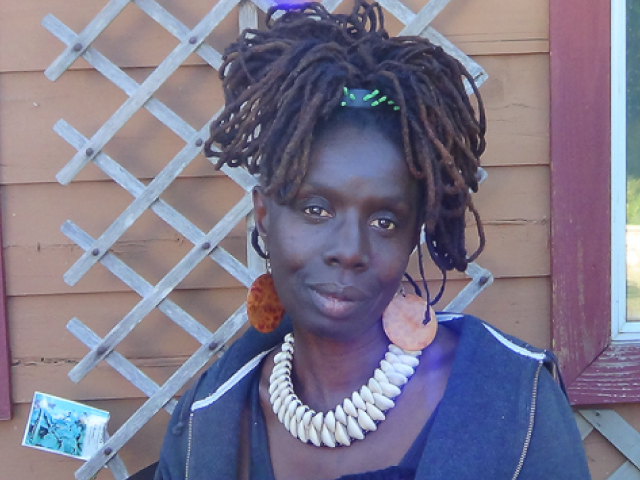
Author and teacher Valerie Mason-John, is now taking her eight-step work online.
Photos by: Joyce Fenton, Henrik Meyer
After years of offering the Mindfulness-Based Addiction Recovery courses in person, I will in July for time offer an online version of the series.
The courses are a unique approach to breaking the cycle of addiction, based on the mindfulness teachings.
As chairperson of the Vancouver Buddhist Centre, I am Dr. Valerie Mason-John M.A. (hon.doc of letters), a Buddhist teacher also known as Vimalasara.
Every week during the month of July there will be an interactive session with me, along with a pre-recorded session, and homework. This secular mindfulness course is for anyone who has behavior that is substance related or not, which brings temporary pleasure or relief. It also will be suitable for anyone who craves, acts out of the craving, and is unable to stop despite negative consequences.
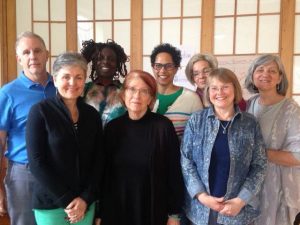
Graduates from MBAR “Train the Trainer” program, in May, 2015, in Toronto.
This course is also for professionals working in the field of addiction who would like to understand addiction through the mindfulness lens. Such people may want to go on to complete the MBAR trainer course that is delivered internationally.
I am also the co-author of “Eight Step Recovery, Using the Buddha’s Teachings to Overcome Addiction,” which won the category of best self-motivational USA book awards in 2014, and also won the same category for the International book awards 2015.
Since its publication in 2014 the book has been re-published in Spanish and Marathi, and a new edition will be printed in 2017. Eight Step Recovery meetings have also begun to spring up internationally including Northwest meetings in Seattle, Everett, and in Vancouver, B.C.
What is Buddhist recovery?
I believe that Buddhist recovery must include going for refuge. This refers to going for refuge to the three jewels: the Buddha, not the human being but what the Buddha attained, freedom from his mind; the dharma, which are the teachings that point to the truth; and the sangha, the spiritual community at the center of our thoughts and lives.
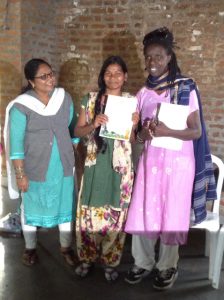
Graduates from the MBAR “Train the Trainer” course held in Nagpur, India, in 2015.
Some people may balk at this, but if we have been addicts, alcoholics, victims of substance abuse, and prone to obsessive behaviors around sex, food and money, then we have to admit we have placed our addictive habits at the center of our lives for many years. If we want recovery we have to place positive qualities at the center of our thoughts, and re-orient our lives around refuges that are not limited.
Buddhist Recovery must also focus on taking a moral inventory and we do this by reciting a version of the five traditional precepts, trainings to help train the mind.
I undertake to abstain from harming life
With deeds of loving kindness I purify my body
I undertake to abstain from taking the not given
With open-handed generosity I purify my body
I undertake to abstain from sexual misconduct
With stillness, simplicity and contentment I purify my body
I undertake to abstain from false speech
With truthful communication I purify my speech
I undertake to abstain from taking intoxicants
With mindfulness clear and radiant I purify my mind
There is also an emphasis on the noble eight-fold path, the path of right vision, right emotion, right action, right livelihood, right speech, right concentration, and right mindfulness. In the eight-step model, we recite the eight steps to help keep the vision of this path alive.
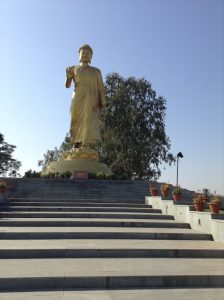
The walking Buddha at Nagaloka Institute, where Mason-John conducted this course.
This path is the way out of suffering. The first four steps highlight the four noble truths: suffering, a path that leads to more suffering, the end of suffering, and the path that can take us away from suffering.
The eight steps are:
- Step One: Accepting that this human life will bring suffering
- Step Two: Seeing how we create extra suffering in our lives
- Step Three: Embracing impermanence to see how our suffering can end
- Step Four: Being willing to step onto the path of recovery and discover freedom
- Step Five: Transforming our speech, actions and livelihood
- Step Six: Placing positive values at the center of our lives
- Step Seven: Making every effort to stay on the path of recovery
- Step Eight: Helping others by sharing the benefits we have gained
Why Buddhist Recovery?
I believe that the Buddha was in recovery, and when he attained Buddhahood, woke up to seeing things clearly, seeing things as they really are. When he broke out of the prison of his mind, he went beyond recovery.
His first teachings clearly state that to gain liberation from our stinking thinking, from our topsy-turvy minds, from suffering, we have to follow the middle way, not through hedonism, addictive behaviors, self-mortification or ascetic practices.
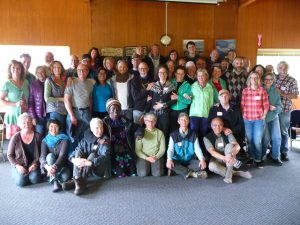
The Western Region Triratna annual Spring Sangha Retreat – The Four Preliminaries – at Camp Samish, May 2016.
The Buddha’s first teachings on the four noble truths are all about suffering and how to end suffering. The noble eight-fold path offers us the middle way. Therefore Buddhist teachings are all about breaking the tendency of the habitual addictive mind.
Why eight steps? Isn’t 12 steps enough?
Mindfulness comes from the Buddhist teachings, and people working in the field of addiction can see the far-reaching benefits of mindfulness on the mind. Neuroplasticity is the buzz word of the 21st century, and it has been proven that mindfulness can create new neural pathways in the brain.
The 12-step tradition has been a life saver for so many families and individuals, but it has never been a panacea, it has never worked for everybody.
The eight-step model is adding to what is available. It takes mindfulness teachings one step further, by encompassing kindness and ethics, two essential things if we are to maintain our abstinence and cultivate sobriety of mind.
But won’t eight steps just confuse people?
There are many other programs besides the 12-step model. There is Self-Management Addiction Recovery Training (SMART), Secular Organizations for Sobriety, and Refuge Recovery to name a few. The eight-step model is another alternative to all of this, and can also be seen as unpacking the 11th step in the 12 step model.
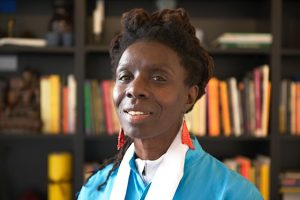
Valerie Mason-John, also known as Vimalasara and Queenie, is the chairperson of Vancouver Buddhist Centre.
Traditionally this is: “We sought through prayer and meditation to improve our conscious contact with God as we understood him, praying only for knowledge of his will for us and the power to carry that out.”
Often people who attend a secular Mindfulness Based Addiction Recovery course ask “What next?”
What’s next is Buddhist recovery. Mindfulness comes from the Buddhist teachings, and while mindfulness gives us tools, Buddhist Recovery offers a way to live your life.
The eight-step model uses the Buddha’s teachings to work with addiction. So it is for anybody.
The Buddha wasn’t a Buddhist. The word Buddha means to be awake. All of us can become awake to the truth.
The Buddha was a human being who rediscovered the way out of suffering. So what this means is that there were people before him who had found the way out of suffering. The Buddha was born as we are born, and we too can attain what the Buddha attained, freedom from the prison of our minds.
